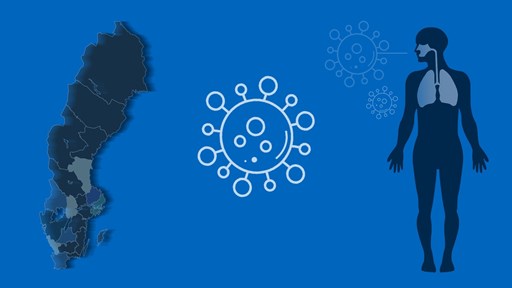Imperative Verbs and the CoronaVirus in Swedish Posted by Chelsea B on Mar 17, 2020 in Culture, Living in Sweden, Swedish Language, Vocabulary
The World Health Organization (WHO) has now classified the CoronaVirus (COVID-19) outbreak as pandemic. As the U.S. has recently taken a strict stance on public health and safety, European countries like Sweden are also navigating mass cancellations, implementing strict policies on social interactions, and are facing public health panic. For this week’s blog, I will share some guidelines that have outlined by Swedish health organizations, highlighting imperative verbs, or command form!
We take a look at an article published by SVT called “CoronaViruset, vad kan jag göra? / The CoronaVirus, what can I do?” SVT cites sources such as Folkhälsomyndigheten / the Public Health Agency, Utrikesdepartementet / the Ministry of Foreign Affairs, and Vårdguiden 1177, Health Guide 1177, as expert resources.
Per usual, I have listed multiple tenses of the verbs below, you’ll find the imperative, or command form, is the verb form with an exclamation point following it. For some additional help with this concept, see my blog post Bake Swedish Cinnamon Buns Using Imperative Verbs!
Read this article without the verb list, read it here first for an extra challenge. Otherwise, I’ve pulled the sentences that are in command form and broken them down for you below.
att ha to have
-> har -> hade -> har haft -> ha!
“Ha god hygien.” “Have good hygiene.”
att undvika to avoid
-> undviker -> undvek -> har undvikit -> undvik!
“Undvik nära kontakt med sjuka människor.”
“Avoid close contact with sick people.”
att tvätta to wash
-> tvättar -> tvättade -> har tvättat -> tvätta!
“Tvätta händerna ofta med tvål och varmt vatten.”
“Wash hands often and with soap and warm water.”
att hosta to cough
-> hostar -> hostade -> har hostat -> hosta!
att nysa to sneeze
->nyser -> nös -> har nyst -> nys!
“Hosta och nys i armvecket eller i en näsduk.”
“Cough and sneeze in your elbow or in a tissue.”
att stanna to stay
->stannar -> stannade -> har stannat -> stanna!
“Stanna hemma när du är sjuk.”
“Stay home when you are sick.”
att gå to go
-> går -> gick -> har gått -> gå!
“Gå inte till jobbet.”
“Don’t go to work.”
att besöka to visit
-> besöker -> besökte -> har besökt -> besök!
“Besök absolut inte äldre släktingar…”
“Absolutely don’t visit older relatives…”
att ringa to call
-> ringer -> ringde -> har ringt -> ring!
“…men ring gärna och hör hur de mår eller om de är oroliga.”
“… but gladly call them and learn how they’re feeling or if they are nervous.”
att resa to travel
-> reser -> reste -> har rest -> res!
“Res inte.” “Don’t travel.”
att bidra to contribute
-> bidrar -> bidrog -> har bidragit -> bidra!
“Bidra inte till vilseledande information.”
“Don’t contribute to misleading information.”
att tänka efter to consider
-> tänker -> tänkte -> har tänkt -> tänk!
att kolla to check
-> kollar -> kollade -> har kollat -> kolla!
“Tänk därför efter och kolla källan innan du sprider vidare…”
“Therefore, consider and check the source before you share it further.”
att hålla to keep, hold
-> håller -> höll -> har hållit -> håll!
“Håll dig uppdaterad.” “Keep yourself up to date.”
Coronaviruset – vad kan jag göra?
PUBLICERAD 15 MARS 2020
Källor: SVT Nyheter, Folkhälsomyndigheten, Utrikesdepartementet, Vårdguiden 1177

Build vocabulary, practice pronunciation, and more with Transparent Language Online. Available anytime, anywhere, on any device.





Comments:
Caroline Green:
English is not “per usual”, but “as usual”, or even “as per usual” – but rather clumsy usage.
Chelsea B:
@Caroline Green Okej, tack!
dani:
Hi Chelsea, Just discovered your blog. Love it!!
Tack så mycket!!
Chelsea B:
@dani Hej Dani! Tack själv, look for a new post each Tuesday 🙂